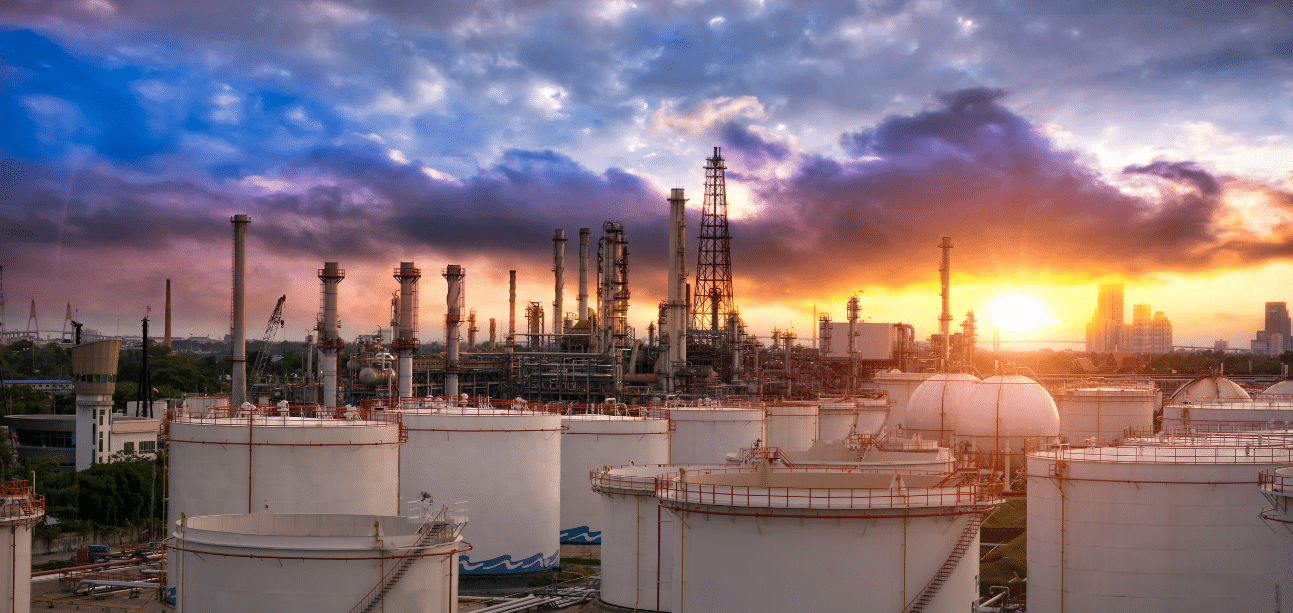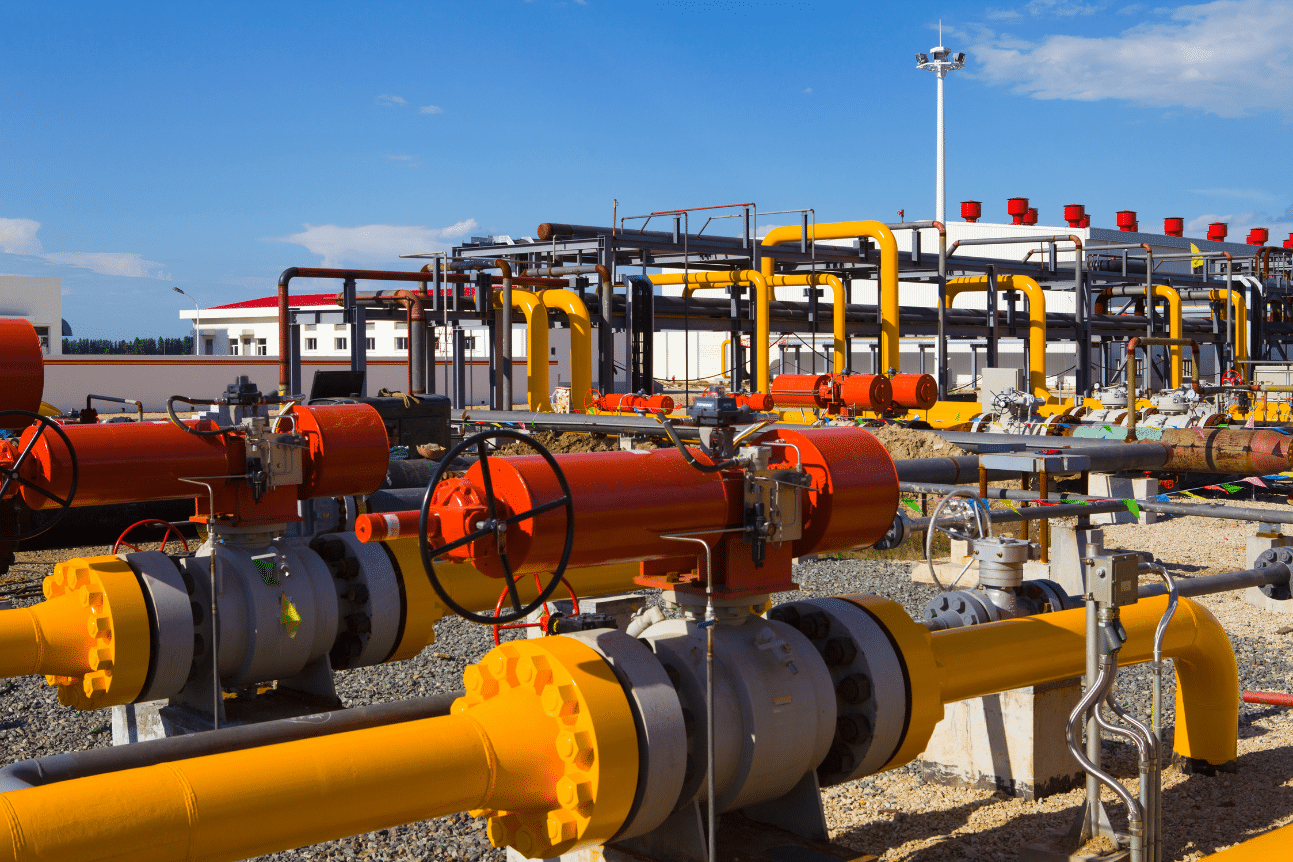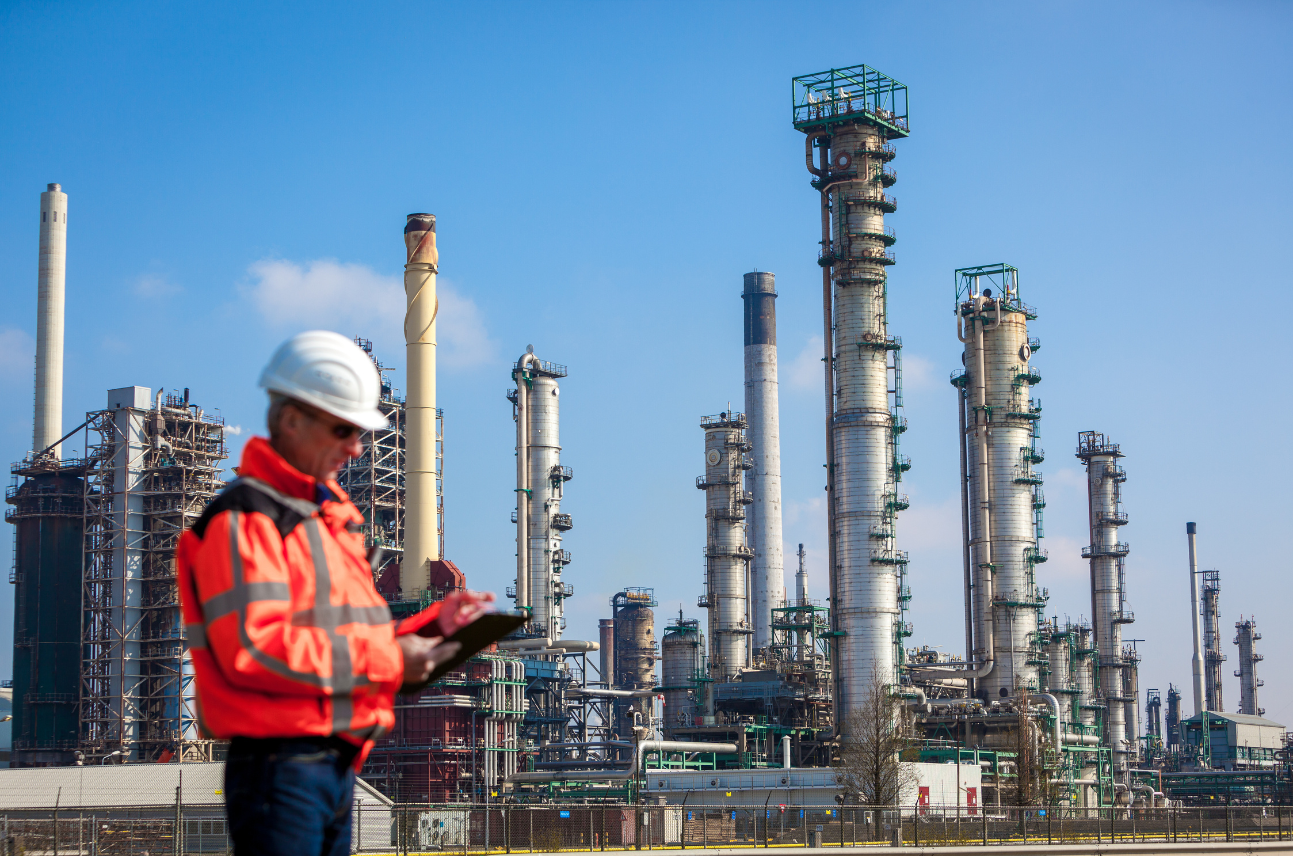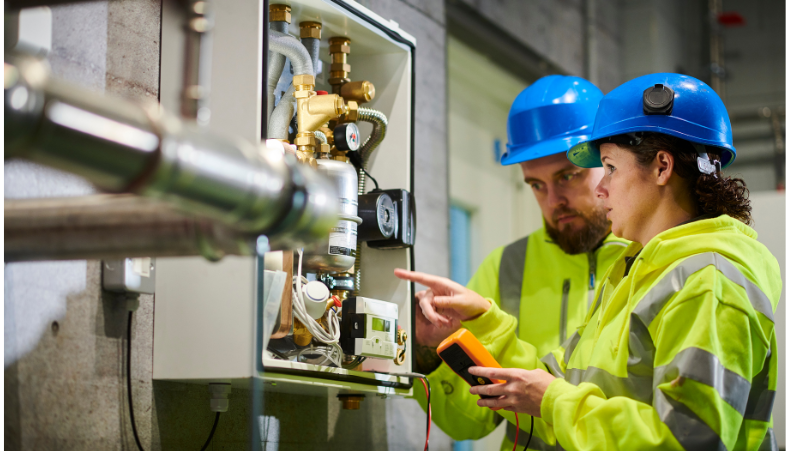
Boilers for Chemical Processing and Petrochemical Industries
Boilers play a crucial role in the chemical processing and petrochemical industries by providing efficient heat transfer and steam generation. These industries heavily rely on boilers to facilitate various processes such as heating, refining, distillation, and reaction.
Boilers are essential for chemical plants and petrochemical refineries as they help convert raw materials into valuable products through controlled heating and pressure. With their ability to generate high-pressure steam, boilers are responsible for powering turbines, providing heat for exchangers, and driving various equipment, contributing to the smooth functioning of the entire production process.
Boilers used in chemical processing and petrochemical industries are designed to be highly reliable, safe, and capable of withstanding corrosive and high-temperature environments, ensuring uninterrupted production and promoting operational efficiency. These specialized boilers are engineered to meet stringent industry standards and regulations, ensuring the highest levels of safety and performance.
Whether it’s producing chemicals, refining petroleum, or manufacturing petrochemical products, having dependable and efficient boilers is paramount to the success of these industries. In this content piece, we will delve deeper into the various types of boilers used in chemical processing and petrochemical applications, their importance, and how they contribute to the overall productivity and profitability of these industries.
Industrial Processes Using Boilers
Boilers play a critical role in various industrial processes, providing the necessary heat and steam for operation. Let’s dive into some of the key applications of boilers in chemical processing and petrochemical industries:
A. Distillation
One of the primary uses of boilers in these industries is for distillation processes. Boilers are essential for heating and vaporizing the liquids to separate the components based on their boiling points.
B. Reaction heating
Boilers are crucial for heating reactions in chemical processing and petrochemical industries. By providing the required heat, boilers facilitate the desired chemical reactions, enabling the production of various compounds and substances.
C. Product drying
Boilers are extensively used for drying products in these industries. Whether it’s removing moisture from chemicals or petrochemical products, boilers ensure efficient drying processes to meet the desired specifications.
D. Power generation
Boilers play a vital role in power generation for chemical processing and petrochemical industries. By producing steam, boilers drive turbines to generate electricity, supporting the overall energy needs of these sectors.
E. Heating applications
Boilers provide the necessary heat for numerous heating applications in chemical and petrochemical plants. From keeping the facilities warm during colder periods to maintaining specific temperatures in various processes, boilers are indispensable.
F. Heat-transfer medium
Boilers serve as a vital source of heat transfer medium for chemical processing and petrochemical industries. They facilitate the transfer of heat to different parts of the production process, ensuring efficient and controlled operations.

Equipment and Components
A. Boiler types
Boilers for chemical processing and petrochemical industries come in various types, each suited for specific applications. Some common boiler types include:
- Fire-tube boilers: These boilers consist of a shell filled with water, surrounded by hot gases. They are suitable for low-pressure applications.
- Water-tube boilers: In contrast to fire-tube boilers, water-tube boilers have water-filled tubes that circulate hot gases. These boilers are suitable for high-pressure applications.
- Electric boilers: These boilers use electricity to generate heat. They offer advantages such as precise temperature control and minimal emissions.
- Condensing boilers: Condensing boilers recover heat from exhaust gases, improving efficiency. They are widely used in chemical and petrochemical plants.
B. Construction materials
The construction materials of boilers for chemical processing and petrochemical industries must withstand harsh conditions and corrosion. Commonly used materials include:
- Carbon steel: Carbon steel is cost-effective and can handle high temperatures and pressures. However, it is prone to corrosion.
- Stainless steel: Stainless steel is resistant to corrosion and offers good heat transfer properties. It is suitable for corrosive environments.
- Alloy steel: Alloy steel provides excellent resistance to high temperatures and pressures. It is often used in critical applications.
C. Combustion systems
Efficient combustion systems are crucial for boilers in chemical processing and petrochemical industries. Common combustion systems include:
- Gas burners: Gas burners are commonly used and provide clean combustion with low emissions.
- Oil burners: Oil burners are used when a liquid fuel source is preferred. They require careful handling due to flammability.
D. Control mechanisms
Control mechanisms ensure safe and efficient operation of boilers. Key control mechanisms used include:
- Boiler controls: These systems monitor and regulate boiler functions such as fuel supply, water level, and pressure.
- Flame safeguard systems: Flame safeguard systems monitor the burner flame and shut down the boiler if abnormalities are detected.
E. Heat exchangers
Heat exchangers are critical components in boilers. They transfer heat between different fluids, maximizing energy efficiency. Common types of heat exchangers include:
- Shell and tube heat exchangers: These heat exchangers consist of a bundle of tubes enclosed in a shell. They are widely used due to their versatility.
- Plate heat exchangers: Plate heat exchangers use thin plates to transfer heat between fluids. They offer efficient heat transfer in a compact design.

Boilers for Chemical Plants
A. Boiler applications in chemical processing plants
Chemical processing plants rely heavily on boilers to facilitate various crucial applications. These applications include heating, distillation, reaction heating, and product drying. Boilers play a vital role in maintaining the desired temperature and pressure levels required for these processes.
B. Role of boilers in distillation, reaction heating, and product drying
Distillation, reaction heating, and product drying are key operations in chemical processing plants. Boilers provide the necessary heat energy to accomplish these tasks efficiently. Through steam generation and controlled heat transfer, boilers enable the separation of components during distillation, facilitate chemical reactions by providing optimal heating conditions, and dry products rapidly and uniformly.
C. Importance of steam generation in chemical processes
Steam is a critical utility in chemical processes. It serves as a versatile and effective medium for heat transfer, carrying thermal energy from boilers to various parts of the plant. Steam generation plays a crucial role in maintaining process temperatures, heating reactants, and providing clean and reliable energy for numerous operations within chemical plants.
D. Heat transfer using heat exchangers
In chemical plants, heat transfer is a vital process. Boilers work in tandem with heat exchangers to efficiently transfer thermal energy. Heat exchangers utilize steam generated by boilers to heat or cool process streams. By effectively transferring heat, these integrated systems enhance energy efficiency and optimize chemical processing operations.
Boilers for Petrochemical Industry
The petrochemical industry plays a pivotal role in our modern world, supplying essential products such as plastics, fertilizers, and fuels. Boilers are an integral part of this industry, providing the necessary steam and heat for various processes. Let’s explore how boilers are utilized in the petrochemical industry.
A. Petrochemical industry overview
The petrochemical industry encompasses the production of chemicals derived from petroleum and natural gas. It includes activities such as refining, processing, and transforming raw materials into valuable products used in a wide range of applications.
B. Utilization of boilers in petrochemical refineries
Petrochemical refineries require enormous amounts of steam and heat for several operations. Boilers are indispensable for providing this energy, which is used in processes like distillation, fractionation, and purification.
C. Boiler roles in oil refining, cracking, and hydrocarbon processing
In oil refining, boilers are used to generate the steam required for various refining processes, such as catalytic cracking and hydrocracking. Boilers also play a vital role in hydrocarbon processing, assisting in the production of essential petrochemical compounds.
D. Significance of steam generation and heat exchangers in petrochemical operations
Steam generation is crucial in petrochemical operations as it aids in heating, separating, and controlling temperatures during different processes. Heat exchangers, often integrated with boilers, are utilized for efficient heat transfer and energy conservation.
As we can see, boilers are essential in the petrochemical industry, providing the energy required for various refining and processing operations. Their significance in steam generation and heat management cannot be overstated.
Boiler Efficiency and Emissions
In any industrial process, efficiency and environmental impact are crucial factors to consider, especially when it comes to boilers used in chemical processing and petrochemical industries. Efficient and environmentally friendly boiler operation not only saves energy and reduces emissions, but it also contributes to cost savings, compliance with regulations, and a positive public image.
Importance of efficient and environmentally friendly boiler operation
Efficient boiler operation is the key to optimizing energy use and reducing operational costs. A well-maintained and properly operated boiler can significantly enhance fuel efficiency, resulting in considerable savings over time. Additionally, efficient boiler operation leads to reduced greenhouse gas emissions, helping industries meet sustainability goals and contribute to a cleaner environment.
Moreover, an environmentally friendly boiler operation also improves indoor air quality and reduces the release of harmful pollutants. This ensures the safety and well-being of workers and nearby communities, as well as helps businesses adhere to emissions regulations and avoid penalties.
Methods for improving boiler efficiency
There are several strategies and technologies available to enhance boiler efficiency:
- Combustion optimization: Proper adjustment of burner fuel-to-air ratios, flue gas recirculation, and combustion controls can optimize the combustion process, maximizing heat transfer efficiency and minimizing fuel consumption.
- Heat recovery systems: Implementing heat exchangers and condensing economizers can recover waste heat from flue gases, using it to preheat incoming feedwater or other fluids, thereby improving overall system efficiency.
- Improved insulation: Enhancing insulation for boilers and pipes reduces heat loss, minimizing energy wastage and improving overall efficiency.
- Regular maintenance: Conducting routine inspections, cleaning, and tuning ensures that the boiler operates at its peak performance, minimizing energy waste and reducing emissions.
Emissions control and compliance with regulations
Controlling emissions is crucial for meeting environmental regulations and maintaining a sustainable operation. Various technologies and approaches can help industries minimize the release of pollutants:
- Low-NOx burners: By reducing the formation of nitrogen oxides (NOx), low-NOx burners help businesses comply with emissions standards, while maintaining efficient combustion.
- Scrubbers and filters: Applying scrubbing and filtering technologies removes particulate matter, sulfur oxides, and other harmful pollutants from flue gases, ensuring compliance with emissions regulations.
- Emission monitoring: Regular monitoring and reporting of emissions help businesses stay in compliance with regulations and identify areas for improvement.
By implementing efficient boiler operation practices and emissions control measures, chemical processing and petrochemical industries can not only reduce their environmental impact but also enhance their reputation as responsible and sustainable organizations.

Safety Measures and Regulations
A. Strict safety guidelines for boiler operation
When it comes to operating boilers for chemical processing and petrochemical industries, safety should always be the top priority. The following are some strict safety guidelines that should be followed:
- Ensure all operators are trained and certified in boiler operation and safety procedures.
- Regularly inspect and maintain all boiler components to identify and address any potential hazards.
- Implement proper ventilation systems to prevent the accumulation of hazardous gases.
- Establish clear emergency procedures and periodically conduct drills to ensure everyone knows what to do in case of an incident.
- Use appropriate personal protective equipment, such as gloves and safety goggles, to protect against potential risks.
B. Equipment monitoring and maintenance practices
Regular equipment monitoring and maintenance are essential to ensure the safe operation of boilers in chemical processing and petrochemical industries. Here are some best practices:
- Implement a comprehensive maintenance program that includes routine inspections, cleaning, and testing of boiler equipment.
- Monitor key indicators such as pressure, temperature, and fuel levels to detect any abnormalities that could lead to safety hazards.
- Regularly check and maintain safety valves, pressure gauges, and other safety devices to ensure they are operating correctly.
- Keep a detailed log of maintenance activities and repairs for reference and compliance purposes.
- Schedule regular maintenance shutdowns to conduct thorough inspections and address any potential issues.
C. Compliance with industry standards
Adhering to industry standards is crucial to maintaining a safe working environment for boiler operations in chemical processing and petrochemical industries. It is important to:
- Familiarize yourself with the relevant safety codes and regulations specific to your industry.
- Ensure that the boilers and associated equipment meet the necessary safety standards and certifications.
- Regularly review and update safety policies and procedures to stay current with changing regulations.
- Conduct periodic audits and inspections to assess compliance and identify areas for improvement.
- Train employees on safety protocols and ensure they understand the importance of compliance.

Boiler Maintenance and Troubleshooting
Regular maintenance is crucial for ensuring the uninterrupted operation of boilers in chemical processing and petrochemical plants. Proper maintenance not only prolongs the lifespan of the equipment but also helps identify and rectify potential issues before they become major problems.
Importance of proper maintenance for uninterrupted operation
Maintaining boilers in chemical processing and petrochemical plants is essential to prevent unexpected breakdowns that can lead to production disruptions and increased downtime costs. Regular maintenance helps identify and address issues at an early stage, reducing the risk of costly repairs or complete system failure.
Proper maintenance includes regular inspections, cleanings, and adjustments to ensure optimal performance and efficiency. It also involves monitoring key indicators such as fuel consumption, emissions, and water quality to identify any deviations from the expected parameters.
Common issues faced in boilers and troubleshooting techniques
Boilers in chemical processing and petrochemical plants may encounter various issues due to factors such as high operating temperatures, corrosive substances, and demanding workloads. Some common problems include:
- Scaling and deposits: Over time, minerals and impurities can accumulate on the internal surfaces of the boiler, reducing heat transfer efficiency. Regular cleaning and descaling can help mitigate this issue.
- Corrosion: Chemical processes and petrochemical products can be corrosive, leading to corrosion in boiler components. Proper water treatment and the use of corrosion-resistant materials can help prevent this problem.
- Low efficiency: Inefficient combustion, inadequate insulation, and leaking steam traps can result in reduced boiler efficiency. Regular inspections and adjustments can help optimize combustion and insulation, improving overall efficiency.
- Pressure and temperature fluctuations: Fluctuations in boiler pressure and temperature can cause instability and potential damage. Monitoring and maintaining proper pressure and temperature levels are vital to prevent accidents and equipment failure.
When troubleshooting boiler issues, it is essential to follow proper techniques and guidelines. This may involve reviewing system logs, analyzing performance data, and conducting thorough inspections. Engaging qualified technicians or boiler experts can help identify the root causes of issues and implement effective solutions.
Repair procedures and best practices
Repairing boilers in chemical processing and petrochemical plants should only be carried out by trained professionals. Following industry best practices ensures the safety of personnel and the integrity of the equipment. Some key repair procedures and best practices include:
- Shut down the boiler and isolate it from the power supply before performing any repairs.
- Follow proper lockout/tagout procedures to prevent accidental start-up during maintenance.
- Ensure all necessary safety equipment, such as gloves, goggles, and hearing protection, are worn during repairs.
- Refer to the manufacturer’s instructions and technical manuals for repair guidelines specific to the boiler model.
- Use genuine and high-quality replacement parts to maintain the integrity and performance of the boiler.
- Conduct thorough testing and inspections after repairs to verify the effectiveness of the solutions.
Adhering to these repair procedures and best practices minimizes the risk of accidents, enhances the longevity of the boiler, and ensures the continued safety and efficiency of chemical processing and petrochemical plant operations.
Energy Efficiency and Sustainability
The importance of energy efficiency in the chemical and petrochemical industries is rapidly growing. With increasing concerns about the environmental impact of these industries, companies are now focusing on ways to reduce their carbon footprint and improve sustainability.
A. Growing significance of energy efficiency in chemical and petrochemical industries
In recent years, energy efficiency has emerged as a key priority for chemical and petrochemical companies. The high energy consumption associated with boilers in these industries has led to a greater emphasis on improving efficiency to reduce costs and minimize environmental impact.
By implementing energy-efficient boiler systems and adopting best practices, companies can significantly reduce their energy consumption and greenhouse gas emissions. This not only helps in lowering operational costs but also enhances their environmental performance.
B. Utilization of alternative energy sources in boiler systems
As the demand for cleaner energy sources continues to rise, chemical and petrochemical industries are exploring alternative energy options for boiler systems. Renewable energy sources such as biomass, solar, and geothermal power are now being utilized to supplement conventional fuel sources.
These alternative energy sources not only reduce greenhouse gas emissions but also provide a sustainable and cost-effective solution for powering boilers. By integrating renewable energy into their operations, companies can achieve significant energy savings and contribute to a greener future.
C. Energy management and renewable resources for sustainable boiler operations
Effective energy management plays a crucial role in sustainable boiler operations in the chemical and petrochemical industries. By adopting strategies such as heat recovery, waste heat utilization, and smart controls, companies can optimize energy usage and minimize wastage.
In addition to energy management, the utilization of renewable resources further enhances the sustainability of boiler operations. By combining energy-efficient technologies with the use of renewable energy sources, companies can achieve a more sustainable and environmentally friendly approach to boiler operations.
Moreover, investing in research and development for advanced boiler technologies can lead to further improvements in energy efficiency and sustainability. Continuous innovation and improvement efforts are essential to meet the increasing energy demands of the chemical and petrochemical industries while minimizing their environmental impact.
Boilers play a crucial role in the chemical processing and petrochemical industries. They are essential for various industrial processes, providing the necessary heat and power to ensure smooth operations.
Throughout this content, we have explored the different equipment and components used in boilers, their efficiency and emissions, safety measures and regulations, maintenance and troubleshooting techniques, and the importance of energy efficiency and sustainability.
Furthermore, we have discussed the significance of boilers specifically in chemical plants and the petrochemical industry. These sectors heavily rely on boilers to facilitate the production of various chemicals, fuels, and other important products.
Manufacturers and suppliers also play a critical role in providing state-of-the-art boiler technology to meet the industry’s evolving needs and regulations. It is important to work closely with trusted suppliers to ensure the highest quality and safety standards in boiler installations.
In terms of future developments, boiler technology is continually advancing to improve efficiency, reduce emissions, and enhance overall performance. Key takeaways from this content include the importance of regular maintenance, adherence to safety regulations, and the pursuit of energy-efficient practices.
As the chemical processing and petrochemical industries continue to grow, it is crucial to stay up-to-date with the latest advancements in boiler technology. By embracing these innovations, companies can improve their operations, reduce environmental impact, and ensure a sustainable future.
